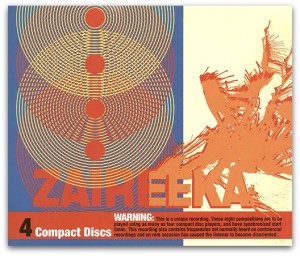Is it still one album if it’s four albums played simultaneously? Here’s the bizarre story behind the Flaming Lips’ Zaireeka.

There were a few reasons why Zaireeka was a hard sell. CD players were still cost prohibitive in 1997, upwards of $100. Few people had more than two CD players, let alone four, and all in the same room, as Zairekka required. It’s also very difficult to sync up four CD players. Every machine has a different mechanical delay both at the beginning of the album and between tracks; even if somebody owned four identical players, they’d have to hit “play” on all four at the same time, which would be hard to do if they followed the Coyne’s instructions to place the stereos and their speakers in four opposite corners of a room. Anything short of complete synchronicity messed up the transitions of sounds as they wound their way from one speaker to the next.
The Flaming Lips label, Warner Brothers, thought the whole project was nonsense, but more importantly, too expensive. After the band proved that they’d only have to sell 12,000 copies to break even, the label agreed to release it…provided the Flaming Lips added another, more “conventional” album to its contract. In other words, Warner paid for Zaireeka but would get another album for free.
How did the critics like Zaireeka? They didn’t. It received a 0.0 out of 10 rating from Pitchfork.com. And yet it sold far better than Warner thought it would: about 30,000 copies over time.







